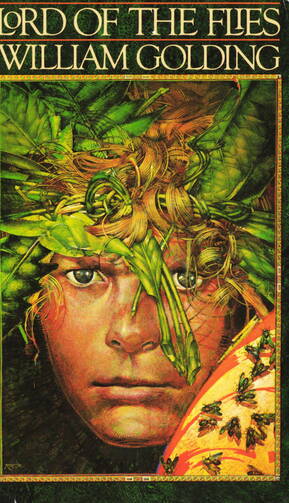Coming together, after their plane crashes onto a deserted island, the lost boys of William Golding’s Lord of the Flies (1954) remind themselves of an important resource, which they still possess, their national identity. Abandoned, without adults, they nevertheless insist,
Their time on the island begins admirably. They elect a leader and promise to listen attentively to whoever holds the conch, a seashell they use to summon themselves together. But readers of this classic know that dread has a way of driving us apart. One would think that in the face of fear, humans would cling ever more tightly to each other, but terror scatters Adam’s sons.
The best of the boys know that they need to stay together. They must follow their self-imposed rules and keep a fire burning, in case a ship should pass. But some ask, “Which is better—to have laws and agree, or to hunt and kill?”
The direct translation of the New Testament’s word for the devil, diabolos, is “the slanderer.” But this Greek word contains two roots, literally meaning “to throw apart.” It’s a powerful insight into the meaning of evil: that which scatters us, even from ourselves.
These are good British boys, but the fear is so strong! Before the short novel ends, two of them will die, victims of the division that dread produces. The boys are so frightened of what might be on island. They don’t realize that the Lord of the Flies, the one who slanders and scatters, isn’t in the dark, out there. He’s in the dark, within them.
Christ comes as the promised one of Israel, the Messiah who gathers God’s people. In contrast to the slanderer, the one who scatters, he summons the twelves tribes of Israel. Christ signals the nations; salvation has dawned.
Naaman, healed by the very dirt of Israel, prefigures our world, which is gathered and healed by the very one whom some in Israel reject. A Samaritan, an outsider, can see the dawn of salvation in his healing. He falls at the feet of the savior to give thanks.
“Maybe there is a beast…Maybe it’s only us.” We know fear in the way that no animal can, because we must live with all the specters our imaginations can summon. Terror scatters: friends, tribes, nations. But Christ calls to us. The savior summons us to his side.
2 Kings 5: 14-17 2 Timothy 2: 8-13 Luke 17: 11-19








